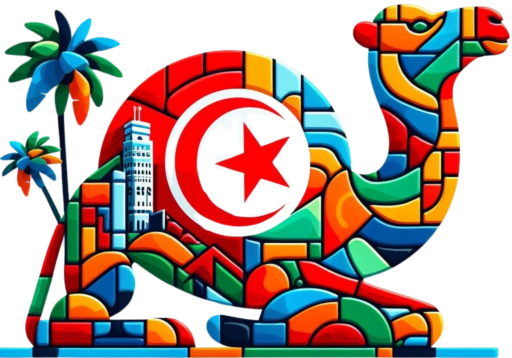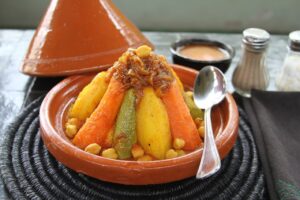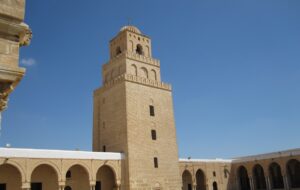Tunis, the capital of Tunisia, is a city located on the North African coast, just over 200 kilometers from Sicily. The surrounding area is hilly and very interesting from a tourist perspective: within a few kilometers, you can find the village of Sidi Bou Said, the well-known seaside resort of La Marsa, and the archaeological ruins of Carthage, an ancient Phoenician city destroyed by Rome during the Punic Wars.
The history of Tunis began with its first settlement in the 4th century BC; a few years later, it became a possession of the Carthaginians. Destroyed by Rome along with Carthage in 146 BC, it was rebuilt under the rule of Augustus and later Christianized, also becoming a bishopric.
During the Middle Ages, especially after the final destruction of Carthage, Tunis began to gain importance, and it was controlled by Arab Muslims, who built the medina. The favorable location of Tunis facilitated its development, thanks to its strategic and military importance in the Mediterranean, thus becoming an important naval base.
During the 9th-10th centuries, Tunis was dominated by the Zirid, Hammadid, and Almohad dynasties, which further boosted the city’s growth.
In 1534, it was conquered by the Ottoman Empire, and later occupied by the French from 1881 to 1956. During this period, there was high immigration from Europe, so much so that Europeans made up about 50% of the population. The times of the French protectorate gave Tunis a modern turn, bringing running water, natural gas, electricity, and public transportation to the city. This led to a rapid expansion of the city, with the demolition of the old city walls and the creation of new suburbs and outlying areas.
Since 1956, the year of Tunisia’s independence, Tunis has become the capital of the country, home to the Chamber of Deputies and the Presidency of the Republic.
Tunis enjoys a typical Mediterranean climate, with hot summers and mild, not too rainy winters. The best seasons to visit are spring and autumn, sunny and with little rainfall. The mitigating action of the sea, combined with the hilly terrain of the surroundings, makes the climate in the area pleasant all year round, although the desert winds of the sirocco can make some summer days very torrid.
Being a cutting-edge capital that looks to the West, Tunis hosts numerous events and festivals from the beginning of spring: March 20th every year marks the celebration of Independence Day, while the famous Guitar Festival takes place during the same month. Between April and May, it’s time for the Orange and Flower Festival, featuring a rich calendar of cultural events, including concerts and theater performances.
Finally, the period of Ramadan is always very significant in the city, although it can be a real inconvenience for tourists. It’s best to check the dates in advance (as they vary each year, following the lunar calendar) because you might encounter logistical difficulties, in transportation, and in the opening hours of shops.
Tunisian cuisine, as expected, draws many influences from Arab cuisine, to which it adds some local delicacies.
The brik is unmissable, a puff pastry turnover filled with egg and tuna, served with a spicy salad. On the table, you’ll also find cooked or raw vegetables and harissa, a deep red sauce made with garlic and chili, prepared to be extremely spicy. It is used to season everything, from meat to fish, including tajines, triangular-shaped earthenware containers in which meat and vegetables are combined and baked.
Also noteworthy are the merguez, grilled lamb and veal sausages generously seasoned with garlic. The national dish, however, remains couscous, prepared in countless ways. To finish off, the desserts: from Ottoman traditions like baklava, to Fatima’s fingers, along with almond, sesame, and honey cookies. All accompanied by a good glass of hot mint tea, healthy and digestive.





